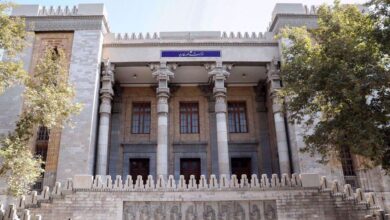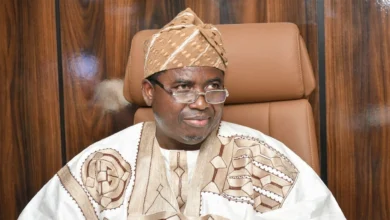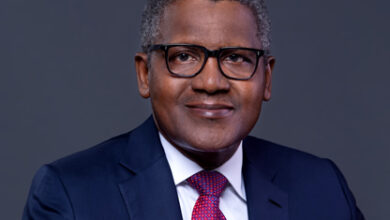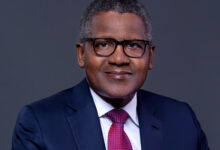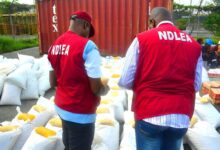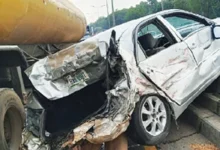Insight into Liad Tella’s work titled, ‘Basic Elements and Techniques of News Writing and Reporting’
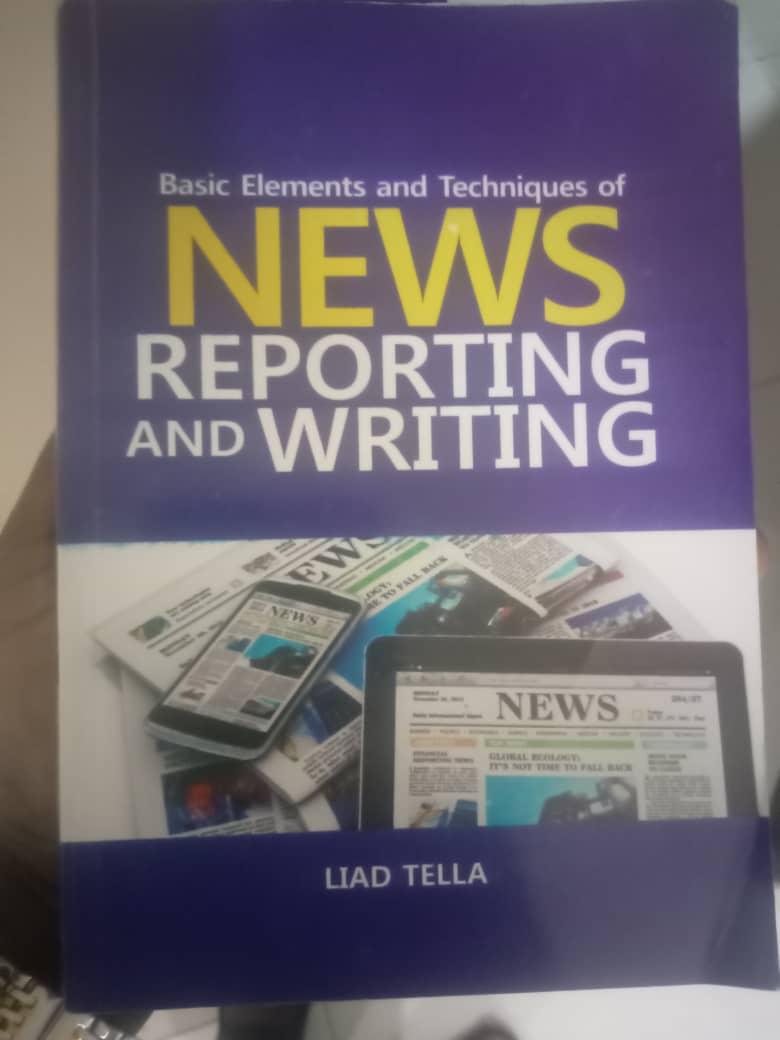
By OGBEYE, REVIEWER
Basic Elements and Techniques of News Reporting and Writing is an insightful and elaborate textbook that teaches theoretical and practical News Reporting and Writing. The author, Liad Tella, showcases his wealth of experience that has spanned more than three decades in active journalism through this simplified and sufficient book.
As an economist who finds himself in journalism either as a support staff or not, the book serves as a practical guard for me in writing and reporting. Honestly, I have not read many texts in journalism and it makes the comparison with other texts difficult. This book is the most interesting among the few that I have read over time. From chapter one to seventeen, my mind and brain were arrested by the professional elaboration and systematic and stylish approach of the author. The practical examples or references make the book reading an unforgettable experience and learning.
In brevity and simplicity, the author canvassed the basic essentials of news reporting and writing. I am particularly thrilled by chapters five and six which are titled “The Writing Process” and “The Writing Skills”, more so that I am an economist who is comfortable with both numeracy and literacy. Chapter five lucidly explains the structure of a news story. The introduction to a story is referred to as the intro or lead and the body to the story is called paragraphs. The intro consists of the basic information classified by all experts as 5Ws & H. What? Who? Where? When? Why? and How? Intro opens the bowel of the story to the readers and as it presents its summary. It further explains different types of intro with example. We have summary, direct, discursive, descriptive, comparative, delayed, poetic, declaration and advocacy intro.
Chapter six elaborately teaches both theoretical and practical news writing skills. The author describes news writing as an art as well as a craft. Because news must be readable and interesting, it requires technicalities to craft and at the same time presented as an art. Strange but lucid to me, the chapter draws and explains with example the concept of inverted pyramid. This is essential in planning a news story. The concept involves the placing of the most important facts of a news story in the early paragraphs of the story. It depicts the pyramid in order of importance.
Reporting for radio and television are governed by the same principle in news gathering, news processing and writing for the television or the print media. The differences are in time frame, style, semantics and depth. The news bulletin can be described as news in transit. It may not be captured unlike the newspaper of magazine that can be read many times over.
The techniques for reporting and writing crime, judiciary, legislature, diplomatic, investigation, politics and sport were critically and sequentially presented. The techniques are great expansion of the frontier of knowledge. The book presents the ideas and techniques of specialty of reporting and writing in the aforementioned topics above. It develops my mind beyond being a media minnow.
There are some oversights that I would like to call the attention of the author to. I would like to argue out some grammatical expressions to learn more because I am not the final authority. They are identified below:
1. On page 3, second to the last line or the last sentence, “…use” instead of “…uses” as in the sentence thus:
“This work therefore adopts and use the Nigerian newspapers and electronic news reports…”
In the sentence above, the subject “work” determines the case of both the lexical verbs “adopts” and “use”. Both must be singular verbs such as follows:
This work adopts and “uses” the Nigerian…
2. The heading in page 13, “What and who determines news?”
When two singular nouns form the subject of a sentence by the aid of conjunction “and”, what determines the accompanying verb is whether they are two different things or are taken to be one. For example:
(i) Bread and tea is good for breakfast.
(ii) Snake and nail are opposite animals.
In the first sentence above, it is a general norm to eat bread and tea together. In that context, bread and tea are taken to be one. The need for the singular choice of verb is necessary. Whereas, snake and snail are different animals. The choice of the verb must be plural.
Going back to the book, what and who are both different entities. One is inanimate and the other is human. The choice of singular verb is wrong in my opinion. It is supposed to be, “what and who determine news?” Compare it with page 53, 2nd paragraph and first sentence; “The integrity and credibility of a medium “is” measured by compliance…” In this context, the words “integrity” and “credibility” are taken to mean the same thing. Hence, it is very appropriate to apply singular verb here.
3. Page 15, 20th line; “How Europe Underdeveloped Africa thus”
I read this Walter Rodney’s work when I was a sophomore in Department of Economics. Why the word “thus” was put here I wouldn’t understand it. The title is lucid and simple as; “How Europe Underdeveloped Africa”. It is therefore unnecessary.
4. Page 18, chapter 3, 12th line; the use of “an” instead of “and” is an oversight that needs urgent correction.
5. Page 53, second paragraph, line 8; “…all media places emphases on truth”.
From the statement quoted above, it is obvious that media is a plural form of medium. The choice of singular verb “places” is wrong. It should have been written as; “…all media place emphases on truth”.
6. Page 76, 2nd paragraph and 12th line, “…ae” instead of “..are”.
7. Page 161,1st paragraph, 2nd line; “Rpeorters” instead of “Reporter”. The spelling demands urgent correction.
The book is of immense value and importance to our corporation, VON. I, therefore, recommend it to all our reporters, news writers and all staff of the corporation. I believe it will refresh the knowledge of our journalists.
Ogbeye, a research and development officer in the Strategic Planning and Corporate Development Department of Voice of Nigeria, studied Economics at Adekunle Ajasin University, Akungba-Akoko, Ondo State.
ask4olajide@gmail.com
08059223910



